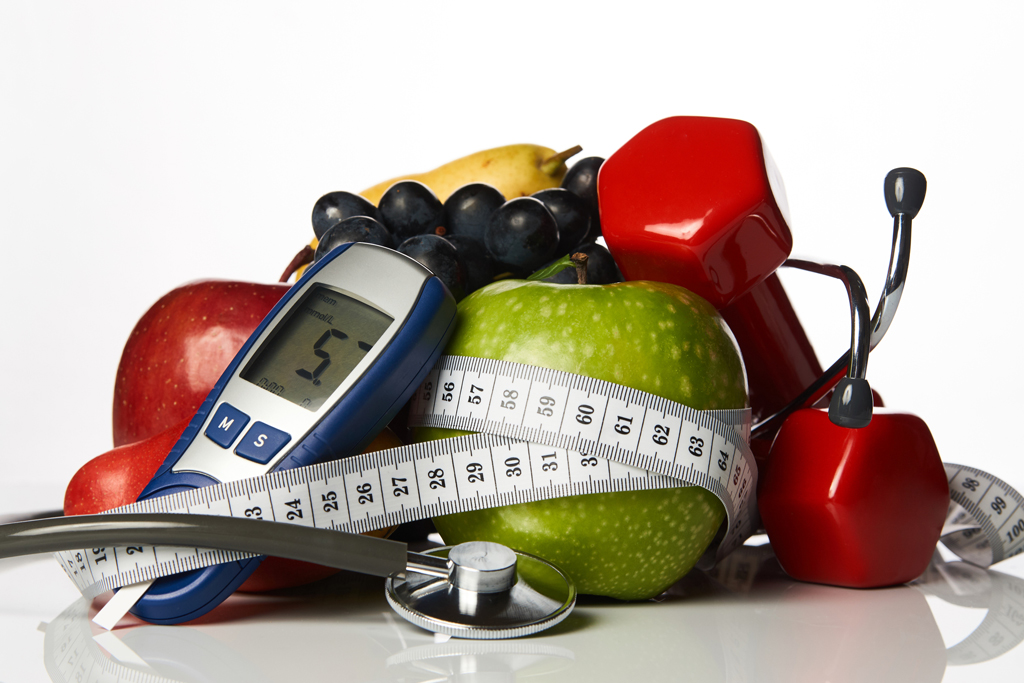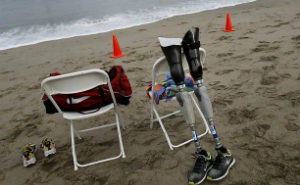Complications with diabetes often affect the feet, and in extreme situations, these complications can lead to amputation. However, good diabetes management and regular foot care can help to prevent these issues and keep you in good health.
Diabetic foot problems often involve nerve damage and poor blood circulation. These problems make the feet particularly vulnerable, allowing external issues such as skin sores (or ulcers) to occur and quickly worsen. The bottom line is to properly manage your diabetes with good nutrition and to take care of your feet—sometimes with the help of diabetic custom orthotics. Here are a few helpful tips to get you started.
1. Check your feet every day.
You should thoroughly inspect your feet for any bruises, swelling, or soreness every day. People with diabetes can often lose sensitivity in their feet, which can cause them to sustain injuries without realizing it. When an injury goes unnoticed, it doesn’t get proper care, and thus, may not heal properly. This is why foot checks are so important; checking your feet daily will help you to be more aware of any injuries or problematic changes to your feet.
When checking your feet, you will want to be thorough. It can be tempting to just do a “once over” and assume all is well at a glance. However, there can be subtle signs of developing injuries or issues that may require a closer look to notice. With each daily foot check, it is recommended that you:
- Inspect all sides, including the bottoms. If you cannot do this yourself, ask a caregiver for help or try using a mirror.
- Look for changes in the skin’s color and shape.
- Check for loss of sensation or feeling. Use a tissue or feather to check for sensations of touch, and see if you can feel differences in temperature by testing hot and cold sensations regularly.
- Check for any painful areas.
- Search for any new bunions, calluses, or corns.
- Note changes in the overall foot shape due to swelling or bruising. This could be a sign of very small breaks in the bones or changes to circulation.
- Examine any new bruises or cuts. If you find new bruises or cuts and suddenly remember recently injuring your foot, it may be indicative of a loss of feeling.
If you find that there is pain in your foot or leg, there are bruises or cuts that are not healing properly, or that you have lost sensation, you should see your doctor. While they may seem minor, these could be signs of more complicated underlying issues, which will be much easier to treat if they are caught early.
2. Keep your feet clean and well-groomed.
You should also wash your feet in a careful manner every day. Always use lukewarm water (no soaking!), and gently rub at calluses with a pumice stone. Dry your feet carefully and completely with a soft towel, and apply gentle creams to keep the skin soft and to prevent cracks that can allow bacteria to enter. Do not put cream between the toes; this area is prone to fungal infections. Instead, sprinkle talcum powder or cornstarch between your toes to keep the skin dry. And finally, remember to trim your toenails carefully and regularly. This will help to prevent ingrown toenails and injuries caused by nails that are overly long.
3. Wear proper footwear (and don’t go barefoot).
If you have diabetes, it is best to always wear closed-toed shoes—even inside your home—to prevent injuries to your feet. All of your shoes should fit properly, be comfortable, and provide support and cushioning for the entire foot, and you may even consider special inserts for additional support. Take care to wear socks that wick moisture away from the feet, and avoid socks that restrict circulation or irritate your skin.
4. Have regular medical examinations.
You should schedule a foot exam with your regular doctor or podiatrist at least once per year. They can inspect your feet for early signs of nerve damage, poor circulation, and other foot problems that the untrained eye is not likely to notice. While it may seem inconvenient or unnecessary to plan regular doctor visits just for your feet, it will give you a better chance of treating any issues before they become more complicated (which will always be worth the trouble).
5. Be careful of foot injuries.
It may surprise you to hear that sustaining a foot injury without noticing it is often a first sign of diabetes. For this reason, any new foot injuries you notice should always be closely examined and monitored—especially if you already know that you are diabetic. Wounds can take a long time to heal, putting the foot at risk for infection, ulcers, and deeper damage to the tissue and bone, which can be all the more difficult to treat when diabetes is present to cause complications.
Diabetes-related foot injuries may require special bandaging and ointments, and they should be carefully monitored under the care of a physician. According to the Mayo Clinic, you should contact your doctor if you have:
- Ingrown toenails
- Blisters
- Plantar warts (flesh-colored bumps with dark specks) on the soles of your feet
- Athlete’s foot
- An open sore or bleeding
- Swelling
- Redness
- Warmth in one area
- Pain (though you may not feel anything if you have nerve damage)
- Discolored skin
- A foul odor
- An ulcer that lasts longer than one to two weeks
- An ulcer bigger than 3/4 inch (2 centimeters)
- A sore that doesn’t quickly begin to heal
- An ulcer so deep you can see the bone underneath
6. Go beyond your feet.
If you do your best to take proper care of your feet and have any injuries monitored carefully by a doctor, you will be well on your way to preventing more severe diabetic foot problems that can lead to amputation. However, it is essential that you also work to manage your diabetes itself with proper nutrition. This will not only help to improve your overall state of health, but it will increase your chances of better foot health as well. After all, it has been proven that better diabetes care is likely the reason lower-limb amputations have decreased by more than 50 percent in the past 20 years. Always take care of your feet and make their health a priority, but don’t forget the importance of managing your diabetes, too.
Diabetic Custom Orthotics at Horton’s
Orthotic footwear can help protect your sensitive feet from injury and help you overcome the pain and discomfort you may be experiencing in your feet and ankles. Horton’s Orthotics and Prosthetics produces custom-molded shoes and inserts that support your feet, allowing you to continue daily activities while protecting your feet from harm.
Start your journey toward healthier feet! Contact us online for more information, or request an appointment by calling (501) 683-8889 or filling out our online form today. At Horton’s Orthotics and Prosthetics, we pride ourselves on providing a lifetime of support.



